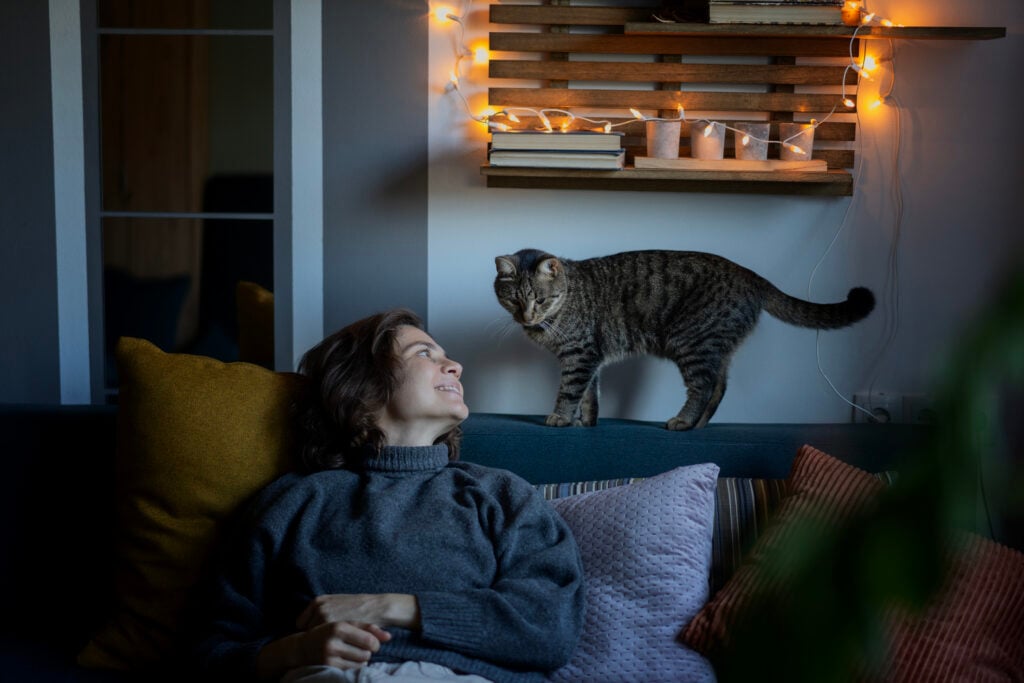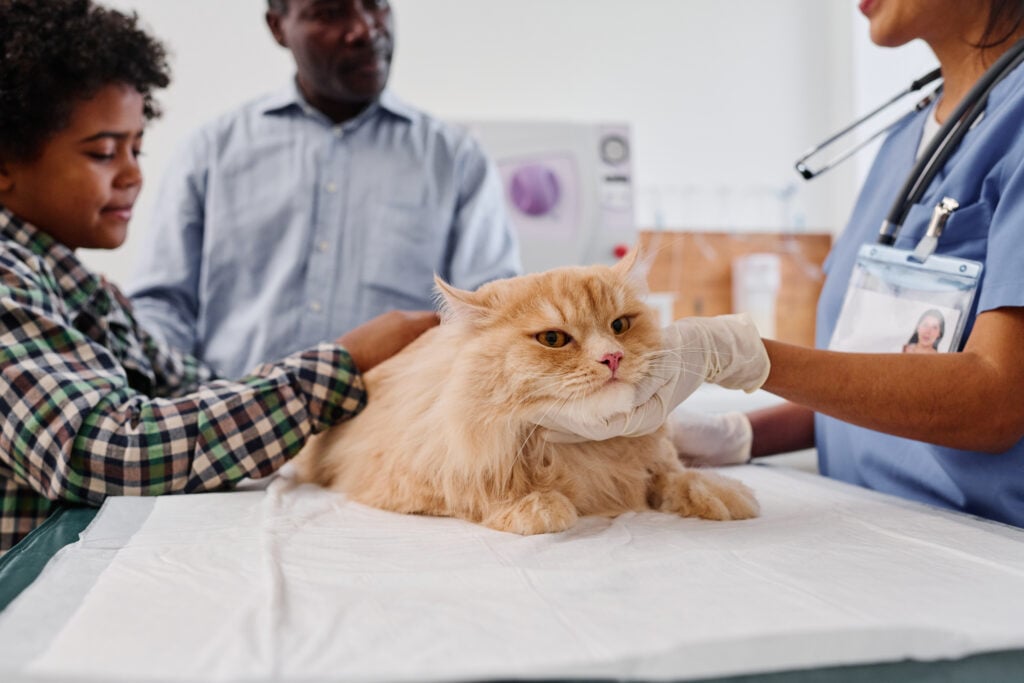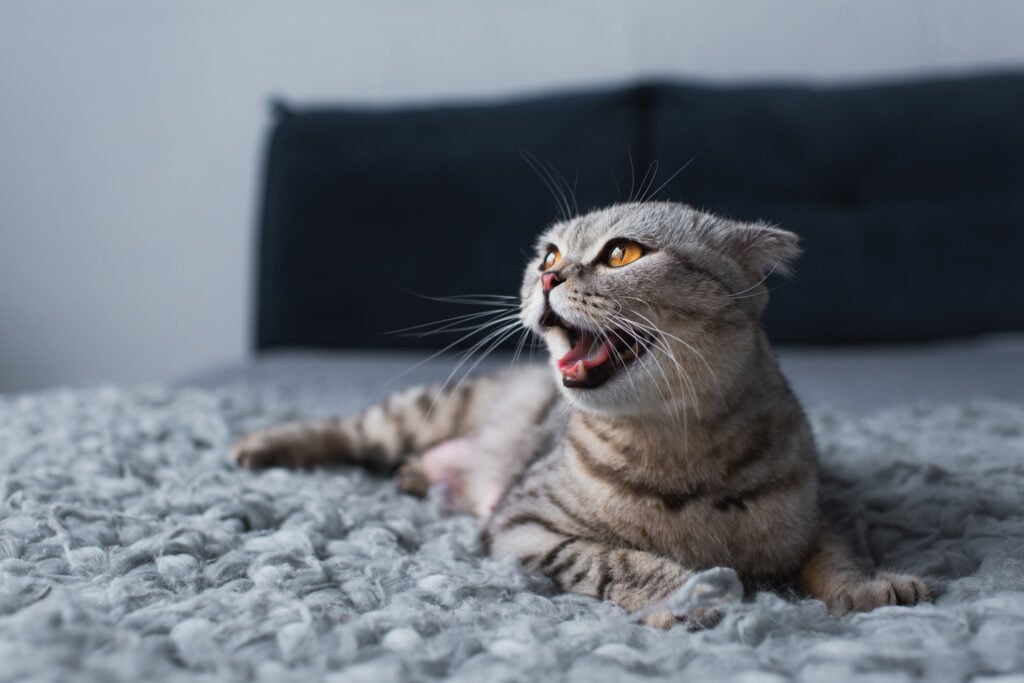Cats are known for their mysterious behaviors, but one that leaves many pet parents puzzled (and sleep-deprived) is when a cat howls at night. If your cat is yowling, crying, or making prolonged vocalizations after the lights go out, you’re not alone—and it’s often your cat trying to tell you something important.
This blog will explore the possible reasons behind nighttime howling, how to determine if it’s behavioral or medical, and what you can do to help your cat—and yourself—get a good night’s rest.
Common Reasons Your Cat Howls at Night
1. Attention-Seeking Behavior
Cats are smart and learn quickly that howling can bring their humans running. If your cat is bored, lonely, or wants food or playtime, they may vocalize more at night when you’re not engaging with them.
What to do:
-
Schedule active play sessions during the day and evening.
-
Feed your cat dinner right before bedtime.
-
Avoid reinforcing the behavior by giving in immediately.

2. Medical Issues or Pain
Persistent or sudden cat howling at night may signal a health problem. Conditions like hyperthyroidism, kidney disease, or urinary tract infections can lead to discomfort and restlessness, especially in older cats.
What to do:
-
Schedule a vet visit to rule out illness or pain.
-
Monitor for other symptoms like weight loss, vomiting, or increased thirst.
3. Cognitive Dysfunction (Feline Dementia)
Senior cats (usually over 10 years old) may develop cognitive dysfunction syndrome (CDS), similar to dementia in humans. One symptom is increased vocalization, especially at night, as they become disoriented or anxious.
What to do:
-
Keep nighttime routines consistent.
-
Use night lights to help them navigate.
-
Talk to your vet about supplements or medications that may help.
4. Territorial Instincts or Mating Behavior
If your cat is not spayed or neutered, hormonal instincts can cause yowling—especially in female cats in heat or males detecting a female nearby. Even indoor cats may howl if they see or smell other cats outside.
What to do:
-
Spay or neuter your cat to reduce mating behaviors.
-
Block access to windows at night.
-
Consider calming sprays or pheromone diffusers.
5. Anxiety or Stress
Changes in environment, travel, moving, or even a new pet can cause anxiety. A stressed cat may become more vocal, particularly when it’s dark and quiet.
What to do:
-
Use calming products like Feliway diffusers.
-
Create a safe space for your cat to retreat to.
-
Stick to regular routines for feeding and play.
6. Hunger or Changes in Feeding Routine
Cats are creatures of habit. If you’ve recently changed your feeding schedule, or if your cat is on a diet, they may voice their hunger louder—especially at night.
What to do:
-
Try timed feeders to offer small meals overnight.
-
Discuss weight management options with your vet if your cat is on a special diet.
How to Stop Your Cat from Howling at Night
-
Provide plenty of stimulation during the day—interactive toys, puzzle feeders, and regular play help wear out your cat.
-
Stick to a bedtime routine. Feed, play, and settle your cat down at the same time each night.
-
Ensure their physical needs are met. Litter box clean? Water bowl full? Comfortable sleeping area?
-
Avoid rewarding the behavior. Don’t get up every time they howl unless you suspect a medical issue.
-
Talk to your vet if howling is new, loud, or persistent. It’s better to rule out medical concerns early.
When to See the Vet

If your cat has never howled at night before or if the howling is accompanied by:
-
Sudden weight changes
-
Excessive thirst or urination
-
Vomiting or diarrhea
-
Confusion or disorientation
It’s time to make an appointment. Cat howling at night is sometimes the only way your cat can express discomfort.
Recap: Why Is My Cat Howling at Night?
-
Attention seeking: Bored or lonely cats may vocalize more at night.
-
Medical issues: Hyperthyroidism, kidney disease, or pain could be to blame.
-
Cognitive dysfunction: Older cats may get confused after dark.
-
Unspayed/unneutered: Hormones drive increased vocalizations.
-
Anxiety: Changes in home or routine can lead to night howling.
-
Hunger: Missed meals or feeding changes might trigger cries.
FAQs: Cat Howls at Night
Q: Is nighttime howling normal for cats?
A: Occasional howling isn’t uncommon, but frequent or sudden vocalizations may indicate an issue needing attention.
Q: How do I know if my cat howls due to a medical issue?
A: If the howling is new or comes with other signs like weight loss or lethargy, consult your vet immediately.
Q: Will spaying or neutering stop my cat from howling?
A: It can significantly reduce vocalizations related to mating behaviors, especially in younger cats.
Q: Can I train my cat to stop howling at night?
A: Yes—with consistent routines, plenty of daytime engagement, and avoiding reinforcement of the behavior, you can reduce nighttime vocalization.
For more advice on cat behavior and health, visit the Hollywood Feed Blog and explore in-store or online our full range of premium food, toys, and wellness products to support your pet.









